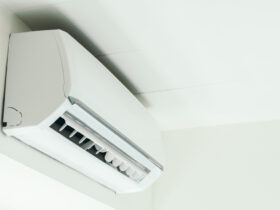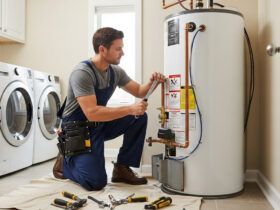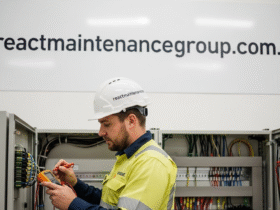Hot water is an essential part of daily life, providing comfort and convenience for everything from showering and washing dishes to doing laundry. A reliable hot water service is crucial for maintaining this comfort in your home or business. However, like any other essential system, your hot water service requires regular attention and maintenance to ensure it operates efficiently and effectively. Whether you’re considering a new hot water system, maintaining your current one, or troubleshooting issues, there are several key aspects you need to understand.
This comprehensive guide covers the most relevant things to know about hot water service, helping you make informed decisions and ensuring that your hot water needs are consistently met.
1. Types of Hot Water Systems
Understanding the different types of hot water systems is the first step in managing your hot water service effectively. There are several types available, each with its own advantages and disadvantages. The choice of system depends on your household needs, energy preferences, and budget.
a. Storage Tank Water Heaters
These are the most common type of water heater, consisting of an insulated tank that stores heated water until it’s needed. The water is kept at a set temperature, ready for use at any time.
- Advantages: Reliable, readily available hot water, lower upfront cost.
- Disadvantages: Continuous energy usage to maintain water temperature, limited hot water supply depending on tank size.
b. Tankless Water Heaters
Also known as on-demand water heaters, tankless systems heat water directly as it flows through the unit, eliminating the need for a storage tank.
- Advantages: Energy-efficient, provides an endless supply of hot water, space-saving.
- Disadvantages: Higher upfront cost, may struggle to supply multiple outlets simultaneously in large households.
c. Heat Pump Water Heaters
These systems use electricity to move heat from the air or ground to heat water, making them more energy-efficient than traditional electric water heaters.
- Advantages: Highly energy-efficient, can significantly reduce electricity bills.
- Disadvantages: Higher upfront cost, performance can be affected by ambient temperatures.
d. Solar Water Heaters
Solar water heaters use energy from the sun to heat water, typically with the help of solar panels installed on your roof.
- Advantages: Environmentally friendly, can drastically reduce energy bills, particularly in sunny climates.
- Disadvantages: High upfront cost, dependent on sunlight availability, may require a backup system.
e. Condensing Water Heaters
These are high-efficiency water heaters that use the heat from exhaust gases to heat the water, making them more energy-efficient than traditional gas water heaters.
- Advantages: Energy-efficient, reduces greenhouse gas emissions.
- Disadvantages: Higher upfront cost, requires proper venting.
2. Importance of Proper Installation
Proper installation of your hot water system is critical to its performance and longevity. An improperly installed system can lead to numerous issues, including reduced efficiency, increased energy costs, and even safety hazards such as gas leaks or electrical fires.
a. Choose a Qualified Professional
Always hire a licensed plumber or a certified technician to install your hot water system. They have the necessary skills and knowledge to ensure that the system is installed correctly, following all local codes and regulations.
b. Correct Sizing
The size of your hot water system should be carefully chosen based on your household’s hot water needs. A system that is too small may struggle to provide enough hot water, while one that is too large will waste energy. A professional installer can help you determine the right size for your home.
c. Proper Placement
The placement of your hot water system can affect its efficiency. For example, a system installed too far from the point of use may result in significant heat loss as water travels through the pipes. Consider positioning the system as close as possible to where hot water is most frequently used, such as the bathroom or kitchen.
3. Maintenance Tips for Longevity and Efficiency
Regular maintenance is key to ensuring that your hot water system operates efficiently and lasts as long as possible. Neglecting maintenance can lead to a range of issues, including reduced efficiency, increased energy costs, and unexpected breakdowns.
a. Annual Inspections
Schedule an annual inspection by a professional plumber to check for any potential issues. This can help identify and resolve problems before they become major repairs, ensuring your system continues to operate efficiently.
b. Flushing the Tank
If you have a storage tank water heater, it’s important to flush the tank at least once a year to remove sediment buildup. Sediment can reduce the efficiency of your system and lead to corrosion, shortening the lifespan of the tank.
c. Check the Anode Rod
The anode rod is a crucial component in storage tank water heaters, designed to prevent the tank from corroding. Over time, the anode rod will deteriorate and need to be replaced. Check it annually and replace it if it’s heavily corroded.
d. Insulate the Pipes
Insulating your hot water pipes can reduce heat loss, improving the efficiency of your system and reducing energy costs. This is particularly important for pipes that run through unheated areas, such as basements or crawl spaces.
e. Monitor the Pressure Relief Valve
The pressure relief valve is a safety feature that prevents the tank from over-pressurizing. Test it annually to ensure it’s functioning correctly. If it’s leaking or not releasing pressure when tested, it may need to be replaced.
4. Recognizing the Signs of Trouble
Even with regular maintenance, hot water systems can develop issues over time. Being aware of the warning signs can help you address problems before they become serious.
a. Inconsistent Water Temperature
If your hot water is fluctuating in temperature or not as hot as it used to be, it could indicate a problem with the thermostat, heating elements, or a buildup of sediment in the tank.
b. Strange Noises
Banging, rumbling, or popping noises coming from your hot water system are often caused by sediment buildup at the bottom of the tank. This can cause the system to overheat and become less efficient.
c. Discolored Water
If the water coming from your hot tap is rusty or has a brownish tint, it may indicate corrosion inside the tank or pipes. This could be a sign that the anode rod needs replacing or that the tank itself is deteriorating.
d. Leaks
Any sign of water around your hot water system should be addressed immediately. Even small leaks can lead to significant damage if left unchecked. Leaks can be a sign of a failing tank, loose connections, or a faulty pressure relief valve.
e. Reduced Water Flow
If the hot water flow from your taps is weaker than usual, it could be due to sediment buildup or a blockage in the pipes. Reduced flow may also indicate a problem with the water heater’s pressure or temperature settings.
5. Energy Efficiency and Cost Savings
Energy efficiency is a crucial factor to consider when managing your hot water service. An efficient system not only reduces your environmental impact but also saves you money on energy bills.
a. Upgrade to an Energy-Efficient System
If your current hot water system is old and inefficient, upgrading to a newer, energy-efficient model can result in significant savings. Look for systems with high energy ratings and consider options like tankless or heat pump water heaters.
b. Use a Timer
Installing a timer on your hot water system can help reduce energy usage by ensuring that the system only heats water when it’s needed. This is particularly useful for households that have predictable hot water usage patterns.
c. Lower the Thermostat
Reducing the temperature setting on your hot water system’s thermostat can save energy and reduce the risk of scalding. Most systems are set at 140°F (60°C) by default, but lowering it to 120°F (49°C) is usually sufficient for most households.
d. Consider Solar Options
If you live in a sunny area, investing in a solar water heater can provide long-term savings on energy bills. Solar water heaters use the sun’s energy to heat water, reducing reliance on electricity or gas.
Conclusion
Understanding the ins and outs of your hot water service is essential for ensuring a reliable and efficient supply of hot water in your home or business. By choosing the right system, maintaining it properly, and recognizing the signs of trouble, you can extend the lifespan of your hot water system and enjoy consistent performance. Additionally, focusing on energy efficiency can lead to significant cost savings and a reduced environmental impact.
Whether you’re upgrading your system, performing routine maintenance, or troubleshooting an issue, being informed about your hot water service will help you make the best decisions for your needs. If you ever have doubts or encounter issues beyond your expertise, don’t hesitate to contact a professional plumber for advice and assistance.











Find Us on Socials